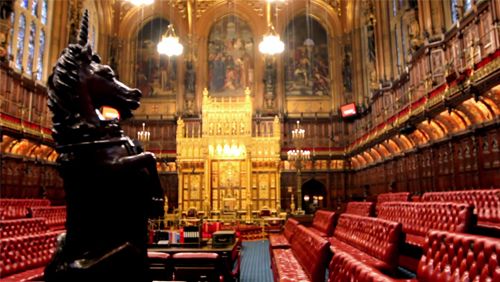The British House of Lords has announced that a select committee will question members of the U.K. Gambling Commission (UKGC) during a hearing researching “the social and economic impact” on the country. The committee will begin hearing testimony at 3:15 pm on February 11.
 Two persons scheduled to appear before the committee are UKGC Chief Executive Neil McArthur and Chairman Dr. Bill Moyes. The two are expected to provide insights on how the regulatory organization governs the gambling sector within the U.K.
Two persons scheduled to appear before the committee are UKGC Chief Executive Neil McArthur and Chairman Dr. Bill Moyes. The two are expected to provide insights on how the regulatory organization governs the gambling sector within the U.K.
This evidentiary committee is part of the House of Lords year-long investigation led by Lord Michael Grade of Yarmouth who has been seeking “reliable facts” on this industry to create a better regulatory framework and better oversight.
The UKGC leadership will be questioned about their approaches to governing the industry, including the direct relationship between the regulatory body and gambling executives. This has become a growing concern, as criticism has been raised against the UKGC by MPs who are concerned about the impact of the potential conflict of interest.
The All-Party Parliamentary Group (APPG) has been quite critical of the appearance of a conflict, pointing to allowing GVC Holdings taking the lead in the development of a code of conduct for industry player rewards. The APPG views this as a “conflict of interest,” and is pushing lawmakers to ensure that the regulatory agency doesn’t allow gambling operators to govern themselves, much like asking the fox to guard the hen house.
The committee is also expected to question how the agency is keeping up on technology trends, consumer habits, and the changing products and services offered by the industry.
This is not the first time that the committee has held such hearings. Last week, the top five betting operators in the United Kingdom, bet365, Flutter Plc, GVC Holdings, Sky Bet, and William Hill, appeared before the committee to provide testimony on what has become an unequivocal collaboration between the industry and the regulatory authorities. The committee found that there are benefits to such a collaboration, but wanted to ensure that consumers were being protected at the same time.
